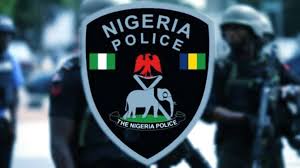The recent report that no fewer than 229 personnel of the Nigeria Police Force (NPF) were killed between January 2023 and October 2024 is a sad development that needs an urgent response to nip it in the bud.
The officers, according to the report, were killed by bandits, hoodlums, gunmen, Boko Haram terrorists, cultists and armed robbers across the country. It referenced the most recent incident of ASP Augustine Osupayi of the Lagos Police Command, who was lynched in October by a mob in Agege when his team tried to prevent the execution of jungle justice.
Many have said that this figure may be under-reported because of inadequate institutional statistics, as Nigeria’s security agencies are not known for being forthcoming with casualty details. They cited areas like the South East, where the Eastern Security Network (ESN), an armed wing of the proscribed Indigenous People of Biafra (IPOB), has continued to wreak havoc, with security officers, mostly police personnel, bearing the brunt of gruesome brutality.
These attacks and killing of police officers have contributed to the rising insecurity in the country.
- How Halal system aligns with sustainable practice besides its exclusive qualities
- Insecurity: FCT police seek collaboration with sister agencies
Reflecting on the aftermath of the #EndSARS protests of 2020—which left at least 22 police officers dead and 205 police stations burnt—this situation is even more troubling considering that Nigeria already falls short of the United Nations’ recommended ratio of one police officer per 450 citizens. Currently, Nigeria’s ratio reportedly stands at one officer per 600 citizens. How can the country hope to bridge this gap amid the demoralising reports of these senseless killings?
While some police officers have stated that they remain undeterred by these “very unfortunate incidents,” it must be emphasised that such deaths are largely avoidable if proper attention is given to policing in Nigeria.
Several reports have highlighted how most officers deployed to restore law and order are often ill-equipped as they move with obsolete arms, insufficient ammunition and unserviceable vehicles, exposing them to avoidable dangers. These reports have also revealed how police officers are often under-deployed in volatile areas and reinforcements are often unavailable.
We align with security experts who have urged the Inspector General of Police (IGP) to provide officers with modern policing equipment necessary to protect them while combating crime. Alongside this, the police must prioritise technology in intelligence gathering to assist officers with a thorough understanding of terrains before sending in operatives. The importance of having boots on the ground cannot be overemphasised.
However, it must be noted that as much as technology has made policing easier in advanced societies, the greatest asset to the police remains the community. This underscores the need for the police authority to improve its community policing scheme and improve public perception. A situation where those who are being policed view police officers as adversaries and vice versa is detrimental not just to community security but also to the welfare of the officers. To this end, agencies like the National Orientation Agency (NOA) must intensify efforts to sensitise citizens on the importance of cooperating with the police to ensure collective safety.
The police authority must also commit to the continuous training and retraining of officers in line with global best practices. At the same time, police officers must work as a team when going for operations. The situation where officers are ambushed because some of their colleagues allegedly share information about their movements with criminals must be dealt with firmly.
It is equally important for the police authority to impress on the government to pay the required attention to boosting the morale of serving officers. The living conditions of many personnel, despite the sacrifices, often make them susceptible to the systemic issue of corruption. Therefore, improving their working conditions, providing prompt payment of hazard allowance, and timely promotions will go a long way in boosting their morale. When they feel valued and supported, they are more likely to commit themselves to the diligent performance of their duties.
Nigerians must unite in condemning these heinous acts against the police. Regardless of the reported misconduct of some bad elements within the force, no one should support such attacks. Strengthening the country’s security requires not only training and retraining security personnel but also instilling confidence in serving officers that their lives matter.
To this end, the welfare of police personnel should equally be of concern. The payment of death benefits must be expedited. Relatives of those who lost their loved ones in the service of the nation must not be allowed to wander or face double jeopardy. It is bad enough that they have lost their loved ones; they must not be turned into living casualties.
We at Daily Trust affirm that police officers, while carrying out their constitutional role of enforcing law and order, must also be protected. The senseless killing of law enforcement officers in the line of duty is avoidable and must be stopped by any lawful means.

 Join Daily Trust WhatsApp Community For Quick Access To News and Happenings Around You.
Join Daily Trust WhatsApp Community For Quick Access To News and Happenings Around You.


